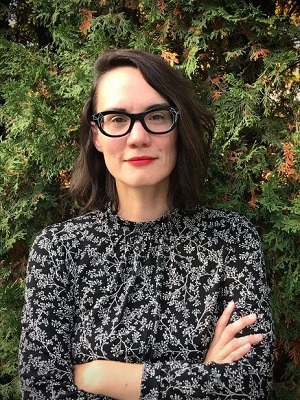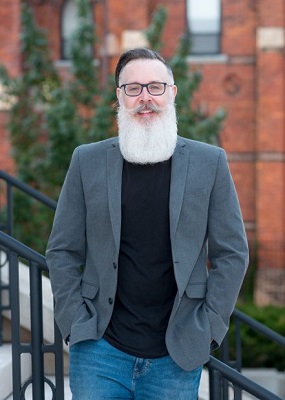Source: BU NEWS — December 1, 2022
BRANDON – Brandon University (BU) faculty members are receiving significant funding for their international projects from the Social Sciences and Humanities Research Council of Canada (SSHRC).
Dr. Allison McCulloch of BU’s Department of Political Science will receive $337,185 over three years as a principal investigator on an SSHRC Open Research Area award. Additionally, Dr. Christopher J. Schneider of the Department of Sociology is a co-investigator on a project that will receive $398,412 over three years. The Open Research Area awards are a joint program by research organizations in Canada, France, Germany and the United Kingdom that allow researchers to do high-quality work in cooperation with other experts from around the world.

Dr. Allison McCulloch (Photo credit: Brandon University)
The two BU-connected projects were among only six funded nationally by SSHRC. Dr. McCulloch is working with colleagues from Canada, the United Kingdom, and France to study how citizens can be included in power-sharing agreements. Power-sharing between rival ethnic groups is often recommended by mediators to end wars in conflict zones. However, power-sharing can be difficult to put in place and just as challenging to renegotiate to meet the needs of the parties.
“While power-sharing settlements are a common tool to bring peace to conflict zones, those agreements are often negotiated by the political elite, and we know very little about how citizens feel about their effectiveness,” said Dr. McCulloch, who is a Professor and the Chair of BU’s Department of Political Science. “By studying how power-sharing settlements emerge, perform and evolve, we can address the issue of reaching agreements that are both adoptable and adaptable in meeting the needs of citizens.”
The international team will conduct research in a range of countries, including Bosnia-Herzegovina, New Caledonia, Lebanon, and Cyprus, to learn what influences a citizen’s decision to endorse or reject power-sharing settlements as well as what capacity citizens have to shape the terms of settlement, through referendums, elections and other ratification processes.

Dr. Christopher Schneider (Photo credit: Brandon University)
Dr. Schneider is working with researchers at Wilfrid Laurier University (WLU) and Trent University in Ontario, as well as colleagues in France, Germany and the United Kingdom to look at how police use visual technology, such as body-worn and cellphone cameras, in training and evaluation. The researchers will first analyze public reports of police conduct based on video evidence and then compare it to police training to see how the visual accounts inform their teaching practices. The results will be used by software engineers at Cardiff University to build video analytic and simulation tools for police oversight and training.
“These visual technologies provide new opportunities to access and analyze police conduct,” Dr. Schneider said. “Public reaction to the new visibility of use-of-force has been extremely polarized, and criticism has been directed at police forces through video evidence when it is made available. However, less attention has been paid to how police use visual information themselves to evaluate officer conduct and training.”
The project is being led by Dr. Patrick Watson of WLU.
"This is a real opportunity to look at how police services from around the world are using technology and responding to policing's new visibility,” Dr. Watson said. “We want to know more about how the public see police (mis)conduct. We're confident this can lead to real gains in training and empowering civilian oversight."
Dr. Watson added that researchers in other countries have also expressed interest in the work, expanding its potential international impact and the benefits for students at BU, WLU and Trent.
“I often talk about the world-class research that we do here at Brandon University. The Open Research Area projects are an example of our faculty working together with other leaders in their field, internationally,” said Dr. Heather Duncan, BU’s Associate Vice-President (Research).
“These collaborative projects lead to exciting discoveries by bringing together experts with a wide range of backgrounds and help expand the reach of our BU research to address key issues on a global scale.”
Success is built at Brandon University. Our growing, progressive campus welcomes a diverse and inclusive community that combines proud tradition with shared ambition. Through our excellence in teaching, research, and scholarship, we educate students to make a meaningful difference as engaged citizens and leaders. Join us at BrandonU.ca
